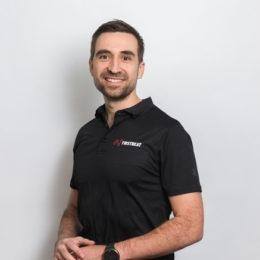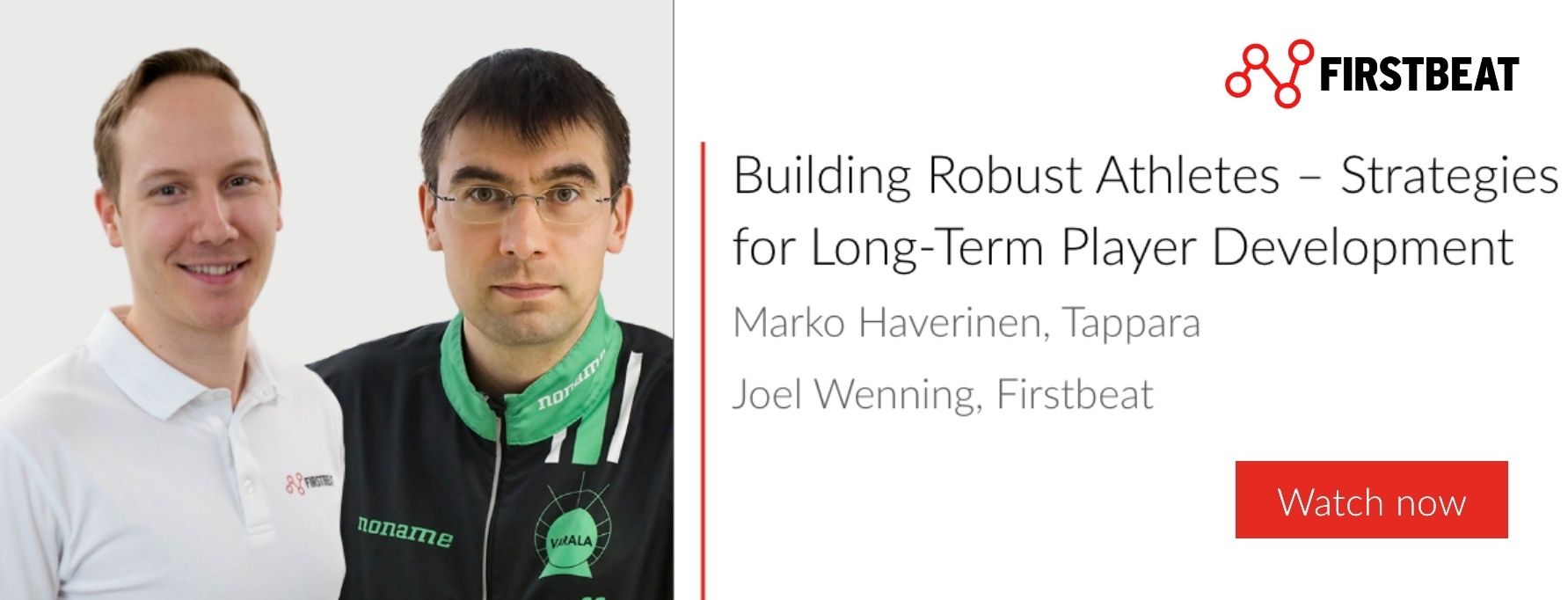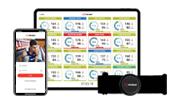
While the Premier League is still going strong, the majority of the European soccer leagues are heading to the winter break during some of the coldest months of the year. This period of a break varies between the leagues from two weeks up to two months. The break allows the teams to build their strategies, work with their conditioning elements and enables the players to recover from their demanding schedule. From a conditioning point of view the question arises: What should the teams and players consider to gain maximum benefits from the break?
Different strategies and approaches have been reported. For example, it has been quite common that professional soccer teams from Europe spend parts of their preparation time in warmer territories such as Turkey, Spain or the Middle East. The better weather conditions and the opportunity to have the team almost 24/7 available provides the coaching staff excellent possibilities on tapering players’ performance.
Like many other teams, also the FC Vaduz of the Suisse Super League is heading this year to Belek, Turkey for a two-week training camp. Harry Körner, strength and conditioning coach from FC Vaduz, provided this insight: “The training camps allow us to focus intensively on both: the team and individual players’ performance, especially from a physiological point of view. In addition to the physical components, we train also on a regular basis the required playing components under optimal heart rate control through Firstbeat. Based on the Firstbeat Training Effect and Quick Recovery Test (QRT) results, we can very precisely examine the physical workload, the effects of the conducted exercise, and the training intensity of every single player during the intensive days in the training camp. Another strong benefit during the camp is that we have generally good weather conditions and time to monitor the players’ training load and recovery, as well as communicate the collected data with the players and the coaching staff. We know from the past, that particularly during the camps, players are very interested in their performance and recovery data. Furthermore, based on the objective data that we immediately provide the players, it was great to see them buy into the system and make the recommended changes to their free time activities and sleep behavior. In addition, the collected data from the pre-season always will provide us conditioning coaches the guarantee that our team is well prepared and ready for the second half of the season.”
Learn more about Training Effect here
Another example comes from Wolfgang Schriebl, previously the strength and conditional coach for Rubin Kazan in Russia: “In 2015 we spent almost four weeks in Belek. We monitored players’ training load and recovery in almost every single training session. With respect to the players’ recovery, the training camp provided us excellent standardized test conditions to conduct overnight measurements and recovery tests on a team level. Every morning we implemented Firstbeat’s Quick Recovery Test and thus created an excellent baseline for both the team and individual levels which became extremely useful for our coaching staff the following year. In other words, the created individual recovery base lines allowed us to make crucial coaching decisions during the game season and assure that we have the most efficient team on the field.
Focus on Recovery
Many of the teams, using Firstbeat Sports are monitoring recovery across the season through overnight recovery tests. While typically the recovery from the game takes three days, the ability to recover seems to drop across the season indicating the accumulated level of fatigue in the body. Based on collected data from our professional sport teams, it appeared that during the winter break the recovery abilities on both the individual and team level slightly increased (Figure 1).
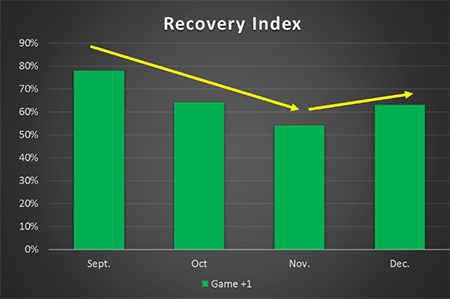
Figure 1: Monthly average for overnight recovery index measured two days after each game from the whole team.
It has also been reported that when shortening the winter break from 6.5 to 3.5 weeks, higher numbers of training related injuries appear during the spring season (Aus der Fünten, Faude, Lensch, & Meyer 2014). Taking this finding into account, the winter break provides an ideal period for recharging the batteries of the players. It does not necessarily mean easy training on a regular basis. However, the combination of the absence of travelling and stress from game preparations, and the increased time spent with families seem to be effective in maximizing the recovery of the individual player. The case example below provides an overview of an individual professional soccer player’s recovery follow-up. The chart illustrates the variation of the individually scaled recovery index (overnight or QRT measurement) from a professional soccer player. It can be noted that especially the training free time and Christmas days boosted players’ recovery (Figure 2). It is essential for coaches and decision makers to identify players who are struggling with recovery prior the offseason break, and make sure that these players get back on track.
Authors:
Veli-Pekka Kurunmäki
Manager of Professional Sports
Firstbeat
Christoph Rottensteiner
Key Account Manager
Firstbeat
Reference:
Aus der Fünten K., Faude O., Lensch J., & Meyer T. (2014). Injury characteristics in the German professional male soccer leagues after a shortened winter break. Journal of Athletic Training, 49(6), 786-93. doi: 10.4085/1062-6050-49.3.51.
If you liked this article, you should subscribe to our mailing list.
You might also be interested in
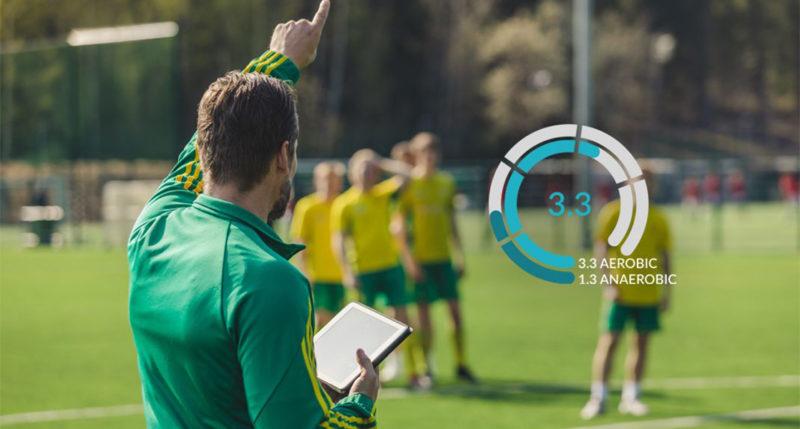
How to Use Training Effect: The Firstbeat Sports Feature that Measures the Impact of Training
In this article, we look at how Training Effect is calculated, the Training Effect scale, and how it is visualized in Firstbeat Sports.

How Loss of Key Player Increases Value of Recovery Data for Tottenham Hotspur
Training load monitoring and recovery testing are among the ways that top teams like Tottenham Hotspur are leveraging science and technology to reduce injuries and create competitive advantages on the field.
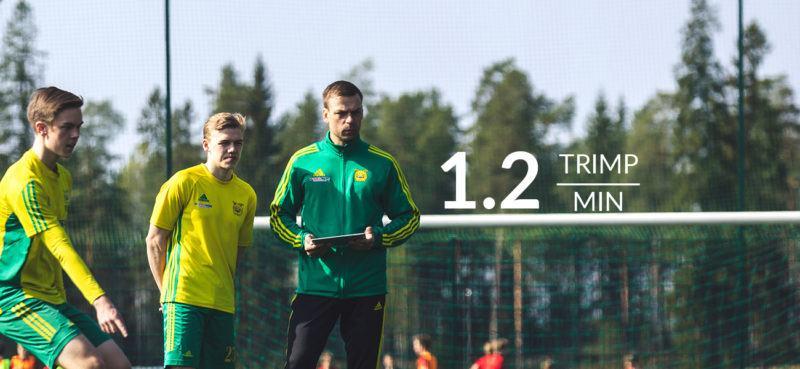
Real-time TRIMP/min: How to Use the Firstbeat Sports App Feature in Training
From replicating game intensity to aiding player rehab, monitoring TRIMP/min has wide-ranging benefits.
